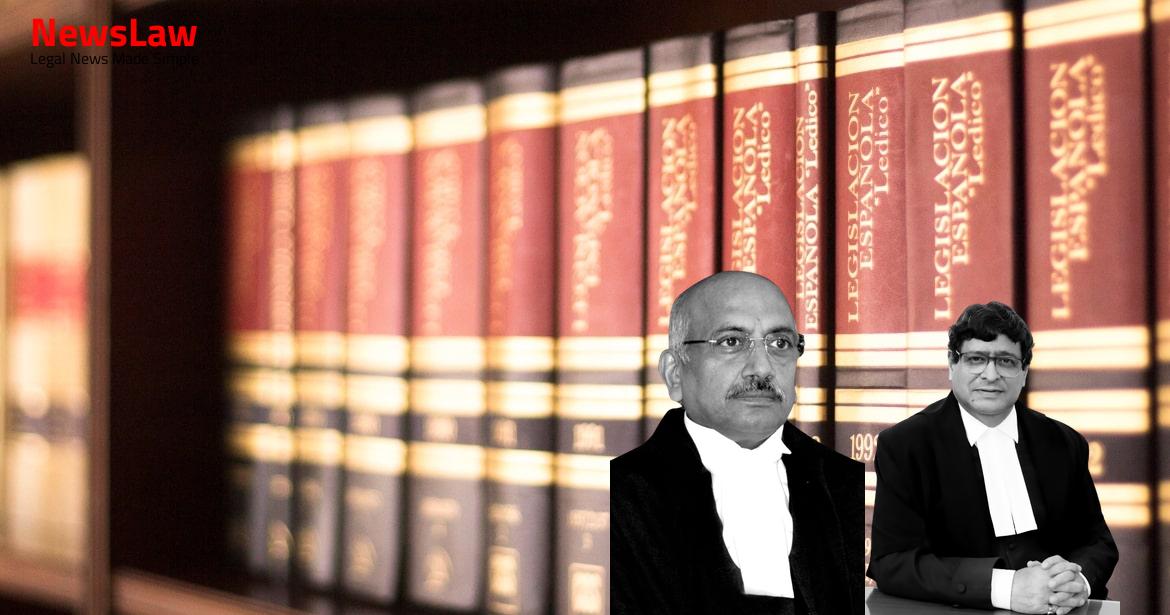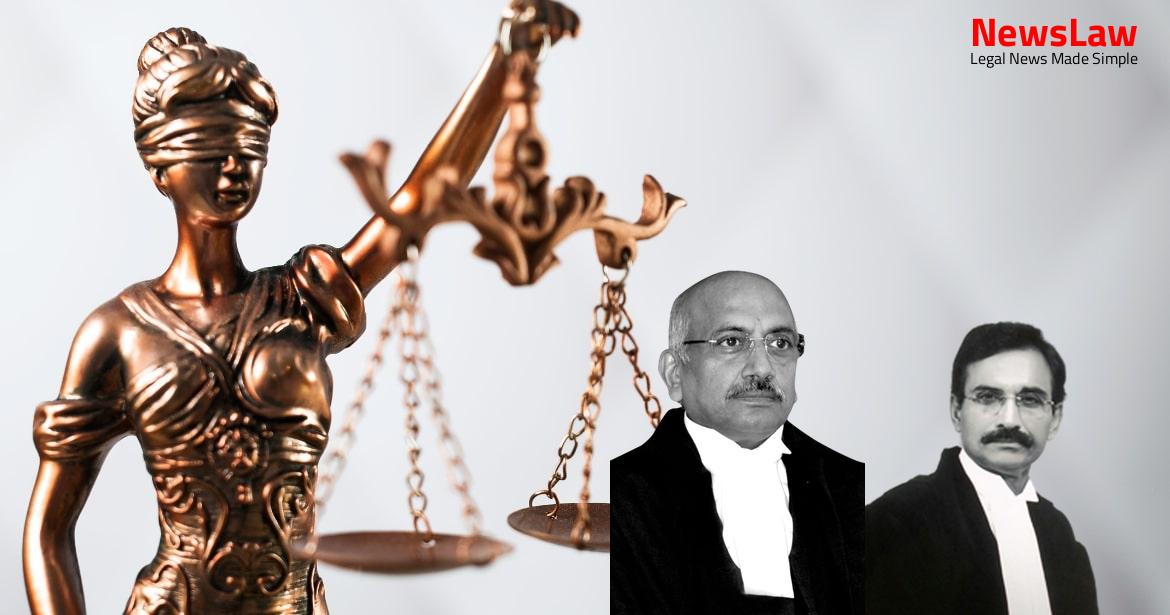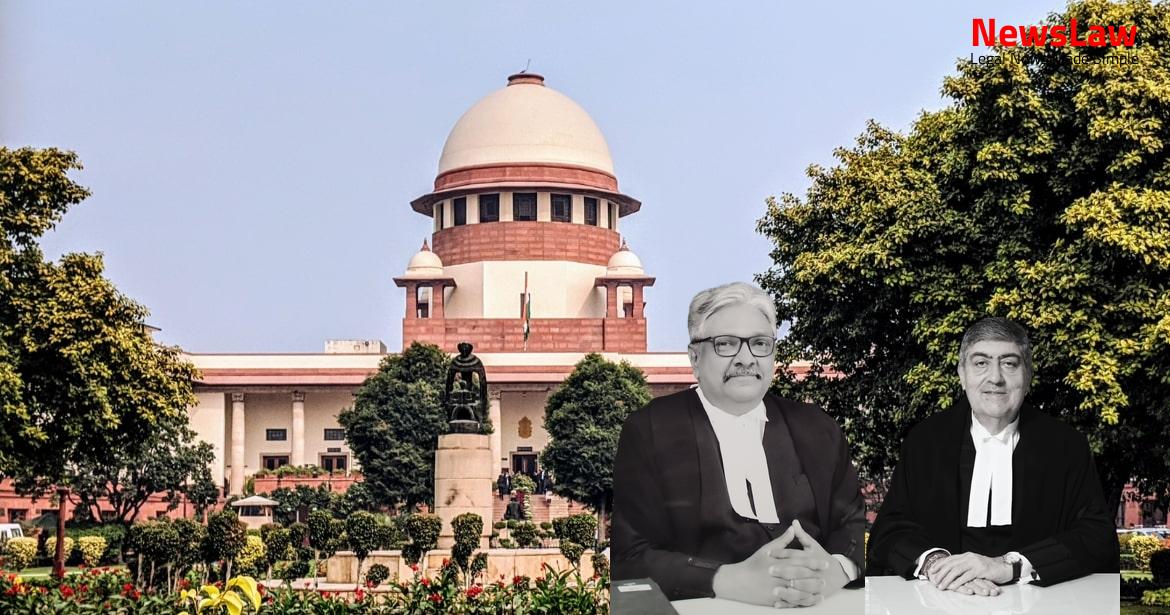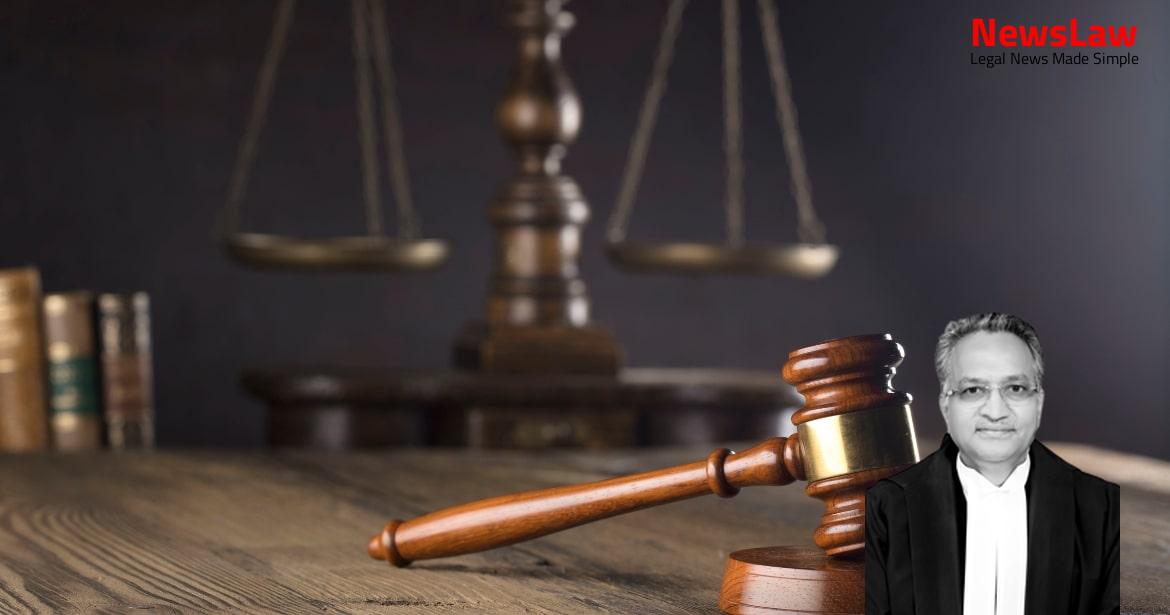In a recent court case, the focus was on assessing the legislative competence of the State of Haryana in enacting a controversial law impacting inter-state entities. The court’s legal analysis delved into constitutional nuances and the interpretation of relevant laws. Stay tuned to understand the complexities of inter-state jurisdiction and the implications for governance structures. #LegalAnalysis #InterStateLaws #ConstitutionalJurisdiction
Facts
- The first writ petition was filed by a resident of Haryana and an elected representative of Shiromani Gurdwara Prabandhak Committee from Kurukshetra.
- The Haryana Sikh Gurdwara Management Bill, 2014 aims to bring Gurdwaras under the exclusive control of the Sikhs of Haryana for proper use, administration, and financial management reforms.
- The Bill was introduced due to the demands of Sikhs in Haryana and in line with constitutional provisions.
- The Haryana Act was enacted on 14.7.2014.
- Writ Petitions (Civil) No. 735 of 2014 and No. 1116 of 2019 challenge the Haryana Sikh Gurdwara (Management) Act, 2014, which establishes a separate juristic entity for managing historical Gurdwaras based on their income.
- Gurdwaras in the State of Haryana are categorized based on income into three schedules: Schedule I, Schedule II (income more than Rs.20 lakhs), and Schedule III (income less than Rs.20 lakhs).
Also Read: Landmark Judgment on Compensation for Fatal Accident
Issue
- Whether the fundamental rights of the petitioners under Articles 25 and 26 of the Constitution of India are violated
- Consideration of Section 72 of the Punjab Reorganisation Act, 1966 and Sections 3 and 4 of the Inter-State Corporation Act, 1957 as transitional provisions
- Determination of legislative competence of the Haryana State Legislature in enacting the impugned Haryana Act
- Assessment of whether the Impugned Act falls under List-III (Concurrent List) of Schedule VII and required the assent of the President of India as per Article 254(2) of the Constitution of India
Also Read: Enhancement of Compensation and Interest Rate in Landmark Legal Ruling
Arguments
- The petitioner challenged the Haryana Act on grounds of infringement of fundamental rights conferred under Part III of the Constitution.
- The petitioner argued that Entry 32 of List II only applies to corporations based within a state, excluding inter-state corporations under Entry 44 of List I.
- The 1957 Act, regulating inter-state corporations, was enacted under Entry 44 of List I, so the Haryana Act violated it.
- The SGPC challenged the Haryana Act for transferring Gurdwara administration rights to the Haryana Committee.
- It was argued that the Haryana State legislature couldn’t enact laws concerning inter-state bodies like SGPC.
- The Haryana Act was said to violate Articles 25 and 26 of the Constitution, impacting SGPC’s management of Gurdwaras.
- The State’s argument focused on maintainability and cited a Punjab & Haryana High Court judgment regarding Panjab University.
- The State of Haryana relied on Entry 32 of List II, while SGPC, as an inter-state body corporate, falls under Entry 44 of List I.
- SGPC’s charitable activities in Haryana were highlighted to show its multi-state presence
- The Haryana Act was criticized for being divisive and against constitutional and statutory provisions, aiming to create dissent among Sikh followers.
- The State of Haryana passed the impugned Haryana Act under Entry 32 of List II, suggesting jurisdiction.
- Union of India argued that the Act actually falls under Entry 44 of List I, as it amounts to winding up the Board established under the 1925 Act.
- State of Haryana and Haryana Sikh Gurdwara Managing Committee disagreed with the petitioner’s stand.
- Respondent No. 3 (SGPC) supported the petitioner and filed a separate writ petition against the Haryana Act.
Also Read: Legal Analysis of Religious Practices in Educational Institutions
Analysis
- The Haryana Committee is an incorporation of a juristic entity under Entry 32 of List II.
- Appeal against the order passed by Punjab and Haryana High Court is pending consideration.
- The Gurdwara property under the Haryana Act includes all properties vested before the appointed day.
- The legislative competence is traced to Entry 28 of List-III, and without the President’s assent, the Haryana Act conflicts with existing law.
- Subsequent developments include the Sikh Gurdwara Amendment Act, 2016, amending Sections 49 and 92 of the 1925 Act.
- The Central Government’s power to modify the functioning of entities like SGPC does not extend to legislative amendments.
- The Haryana Act resembles the 1925 Act, with some contextual changes.
- The jurisdiction of the State of Haryana to enact the Haryana Act falls under List II and III.
- The Haryana Act was enacted for the administration of Sikh Gurdwaras within Punjab.
- The SGPC became an inter-state body corporate due to the reorganization of Punjab in 1966.
- Section 72 of the 1966 Act and Sections 3 and 4 of the Inter-state Corporation Act, 1957 were transitional provisions.
- The legislative competence of the State of Haryana to pass the Haryana Act is upheld.
- The Central Government is empowered to issue directions under the transitional provisions for inter-state entities.
- The Haryana Act does not require the President’s assent as it falls under the State’s legislative competence.
- The Haryana Act is considered valid and falls within the jurisdiction of the Haryana State Legislature.
- Section 70 provides a procedure for co-operative societies specified in the Fifteenth Schedule of the 1966 Act becoming a multi-unit cooperative society.
- Section 73 covers seven corporations to continue until otherwise provided for in any law, agreement among successor States, or direction from the Central Government.
- Section 89 allows for adaptations in laws by the appropriate Government until altered, repealed, or amended by the competent legislature or authority.
- Central Government can issue directions under Section 72(1) until other provision is made by law.
- The 1925 Act extends to territories previously part of the State of Punjab and PEPSU.
- Management of notified Sikh Gurdwaras is to be administered by Committees, Boards, and the Commission as per the Act.
- SGPC is the Board constituted under Section 43 of the 1925 Act.
- The 1925 Act provides for the administration and management of Gurdwaras’ property, endowments, funds, and income as per Section 85(1).
- Committees for Sikh Gurdwaras are constituted under Section 87 with 5 members.
- Gurdwaras under the 1925 Act are in Punjab, Haryana, Himachal Pradesh, and Chandigarh, managed by SGPC.
- States Reorganisation Act, 1956 included PEPSU in Punjab.
- The Board comprises 170 elected members and Head Ministers of various Gurdwaras, with jurisdiction divided into 120 constituencies.
- The Act has 50 plural constituencies, each returning 2 members for the election of 170 Board members.
- The State of Punjab has reserved the power to make laws in respect of the SGPC as an inter-State body corporate to the Central Government only.
- Various judgments such as Union of India v. Rajendra N. Shah & Anr. and Mullaperiyar Environmental Protection Forum v. Union of India & Ors. were referenced, emphasizing the role of the Central Government in cases of disagreement between States.
- The Parliament passed the Sikh Gurdwara (Amendment) Act, 2016 to retrospectively amend the 1925 Act, following a court decision.
- State legislature has the competence to make laws in respect of universities, societies, and associations.
- The High Court of Punjab and Haryana dealt with issues related to notifications and directions issued by the Central Government regarding inter-State bodies, such as the Board functioning under the 1925 Act.
- The Central Government can issue directions regarding the functioning of inter-State bodies until successor States make other provisions by law.
- The High Court’s decisions regarding the ambit of Section 72 of the 1966 Act in the context of inter-State bodies were upheld by the Supreme Court in various cases.
- In cases of dispute or difficulty, the Central Government may intervene as per the relevant legal provisions.
- The State of Kerala and Tamil Nadu were involved in a case concerning water levels in a dam.
- Legislative competence and validity of certain Acts were discussed in relation to inter-State bodies and universities.
- In the judgment reported as Smt. Swaran Lata v. Union of India & Ors., the issue regarding the post of Principal at Government Central Crafts Institute for Women in Union Territory of Chandigarh was examined.
- The question addressed was whether the said post was a deputation post exclusively meant to be filled by an officer on deputation or could also be filled through advertisement and appointment made by the Union Public Service Commission.
- The affairs of the Sikh minority in the State are to be managed by the Sikhs alone.
- This does not violate any of the fundamental rights conferred under Articles 25 and 26 of the Constitution.
- The writ petition is maintainable due to being pending before the Court for almost 8 years with an interim order in operation.
- The questions in the petition are purely legal and have been examined to provide finality to the issues.
- No merit found in the writ petitions based on the above reasons.
Decision
- The appellant has not discharged any functions due to a stay by the Court
- The challenge in the appeal is against an order dated 8.3.2018 from the Punjab and Haryana High Court
- The appointment of the appellant was rescinded
- The appellant’s appointment for five years has ended
- The appellant has no remaining cause in the appeal
- The challenge is against the rescinding of the appointment in a notification dated 6.3.2018
- The appellant was appointed as Additional Commissioner Gurdwara Elections on 29.8.2014
- Civil Appeal No. 6614 of 2022 has been dismissed
- The position of Additional Commissioner Gurdwara Elections is under the Haryana Sikh Gurdwaras (Management) Act, 2014
- The validity of the Act has been upheld by the Court
Case Title: HARBHAJAN SINGH Vs. STATE OF HARYANA (2022 INSC 989)
Case Number: W.P.(C) No.-000735-000735 / 2014



